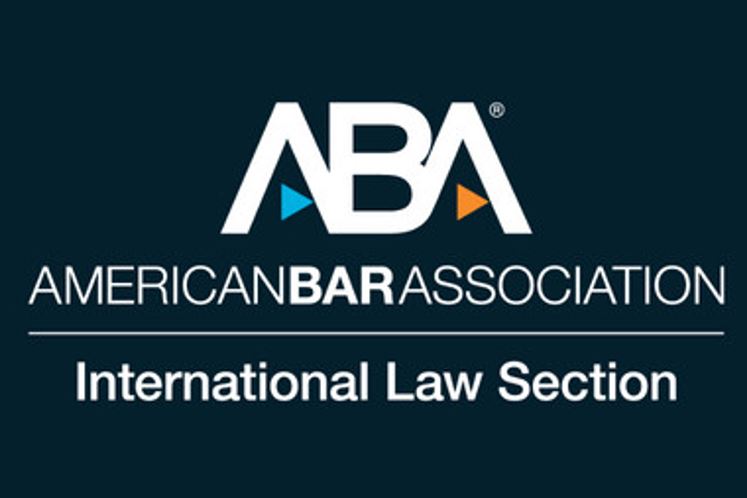I. Can allegations of corruption serve as a bar to jurisdiction of arbitral tribunals or admissibility of claims?
Allegations of corruption do not by themselves serve as a bar to jurisdiction of arbitral tribunals. Under Slovak law, the arbitrators have the power to decide on their jurisdiction and also on the allegation of corruption raised by the parties in the arbitration proceedings. Thus, allegations of corruption may serve as a bar to the jurisdiction of the arbitral tribunal or the admissibility of claims if the arbitrators conclude so in the proceedings while assessing the validity of the arbitration clause.
This means that raising the issue of corruption regarding the conduct of any party during the arbitration proceedings does not automatically lead to the termination of the arbitration process.
II. Can allegations of corruption affect the validity of an arbitral award?
An allegation of corruption can affect the validity of an arbitral award in the following cases: i) if it concerns the conduct of the arbitrators or the validity of the arbitration clause or ii) in the exceptional case where the corruption constitutes a breach of public order. In such cases, the award could be set aside. Under the relevant case law in the Slovak Republic, the term breach of public order should be interpreted restrictively and the degree of interference of the arbitral award with the public order should be incompatible with the principles of the social and state structure of the Slovak Republic and its legal order, which must be insisted on without reservation. In principle, situations when the arbitration award was influenced by a criminal act of an arbitrator, expert or witness in an arbitration proceeding or the arbitral award was issued by a manifestly biased arbitrator should constitute a breach of public order.
In case of a consumer arbitration, the court review of arbitral awards is more extensive. In such case, an allegation of corruption could affect the validity of an arbitral award also on the grounds that i) the corruption caused the facts in the arbitration proceeding to not be correctly established, ii) an arbitrator in the proceeding was biased, and iii) the arbitration award is based on an incorrect legal assessment of the case.
III. In annulment or enforcement proceedings, can the court review the award and the merits to determine whether corruption or related offences affect the underlying dispute?
Under Slovak law, the annulment and enforcement proceedings are not constructed as appellate proceedings and the merits of the case shall not be reviewed by the court unless for the qualified grounds stated in the Slovak Arbitration Act.
The grounds to annul an arbitration award are stated in the Slovak Arbitration Act as follows: i) a party in the proceeding did not have the capacity to conclude an arbitration agreement or the arbitration agreement was not concluded in accordance with the law; ii) a party in the proceeding was not duly notified of the appointment of the arbitrator or of the arbitration proceeding, or it was not allowed to participate in the arbitration proceeding; iii) the arbitration award has resolved a dispute for which no arbitration agreement has been concluded, or which is not within the scope of the arbitration clause, or that the award exceeds the scope of the arbitrator agreement or the scope of the arbitration clause; iv) the arbitration court was not established or the arbitration proceeding were not conducted in the manner agreed upon by the parties to the arbitration proceeding, or that this agreement was not concluded, if these facts could have influenced the decision on the merits; or v) under Slovak law, the subject of the dispute cannot be resolved in arbitration proceedings or its recognition and enforcement would be contrary to public order.
In case of consumer arbitration, the ground to annul an arbitration award are more extensive and include also the following: i) the facts were not correctly established in the proceeding because the arbitration court incorrectly assessed the evidence presented, did not conduct the proposed evidence or did not allow the consumer party to present evidence, and this error could have influenced the outcome of the dispute; ii) the case was decided by a biased arbitrator; iii) the arbitration court ruled in violation of the provisions of generally binding consumer protection legislation and this violation could have influenced the outcome of the dispute; or iv) the arbitration award is based on an incorrect legal assessment of the case.
In case of consumer arbitration, there are also additional requirements for review of the arbitration award in enforcement proceedings. In such case, an application for enforcement on basis of a consumer arbitration award shall be rejected by the court if i) the consumer arbitration agreement does not meet the legal conditions, ii) the arbitration award in the consumer dispute was not issued by an arbitrator who was registered in the list of authorized arbitrators, iii) the arbitration award in the consumer dispute was not issued by an authorized permanent arbitration court, iv) the arbitration award does not meet the legal requirements or is not enforceable.
IV. Can courts review corruption allegations which have not been raised in the arbitration?
Courts can review corruption allegations which have not been raised in the arbitration in an annulment proceeding if the ground for annulment is that the recognition and enforcement of an arbitration award would be contrary to public order. Such ground has to be reviewed by the court even if the party of the proceeding did not raise it in the arbitration proceeding and also if the party did not even raise it in the petition for annulment of the arbitration award. Other grounds for annulment maybe reviewed by the court only if they were raised by the party in the arbitration proceeding.
In case of an arbitration award issued in a consumer arbitration proceeding, corruption allegations which have not been raised in the arbitration may be reviewed by the court in an annulment proceeding based on any grounds for annulment.
V. Do courts defer to the arbitral tribunal’s finding that no corruption acts were committed?
In the Slovak Republic, the courts review arbitration awards only under the available grounds for annulment. Unless the act of corruption qualifies as a reason for an annulment, the court will not assess relevant matters which were reviewed in the arbitration proceeding.
VI. Is there a standard of proof used by arbitrators and reviewing courts to assess the existence of corruption?
In arbitration proceedings in the Slovak Republic, evidence is evaluated under the principle of free evaluation, with the arbitrators evaluating the result of evidence impartially according to their own considerations. In civil proceedings in the Slovak Republic, evidence is similarly evaluated under the principle of free evaluation of evidence under the Slovak Civil Litigation Code. Pursuant to the Slovak Civil Litigation Code, the court shall evaluate the evidence at its discretion, each piece of evidence individually and all the evidence in its mutual context; in doing so, it shall carefully take into account everything that has come to light during the proceeding.
The standard of proof in arbitration and courts proceedings in the Slovak Republic is in general based on preponderance of the evidence principle, i.e., demonstrating that the proposition is more likely true than not. In arbitration proceedings with consumers, the arbitral tribunals may, in the interest of consumer protection, require information, documents and other evidence that is relevant to the proceedings and decision in their own initiative and on top of the documents provided by the parties of the proceedings.
VII. Which method do arbitrators and reviewing courts employ to establish evidence of corruption?
There are currently not many arbitral awards dealing with corruption or similar offences in Slovakia. There are also no court decisions reviewing awards on this issue. The evidence of corruption should be established on the basis of the high level of probability of the fact.
VIII. Are arbitrators seated in your jurisdiction bound by criminal proceedings on issues that could impact the underlying arbitration dispute?
Under Slovak law, courts are expressly bound by criminal judgment rulings that a criminal offence has been committed. The courts are also required to stay the proceedings until the criminal court decides on the criminal offence that is relevant for the resolution of the court decision on arbitral award review. Arbitrators are not strictly bound by criminal judgment rulings that a criminal offence has been committed; however, they should decide in accordance with them, otherwise they risk that their arbitration award would be against public order. The arbitrators are also not required by the law to stay the proceedings until the criminal court decides on the criminal offence that is relevant for the resolution of the court decision on arbitral award. However, they may stay the arbitral proceedings in such case to avoid possible contradictions between their decision and the criminal ruling.
Under Slovak Law, criminal offences are non-arbitrable and the arbitral tribunals do not have jurisdiction to decide on them. The arbitral tribunals can rule on the civil consequences of the criminal offence falling into the scope of arbitrable matters, such as compensation of damages related to a commercial relationship.
IX. To what extent do they rely on or defer to findings from parallel criminal investigations?
Arbitral tribunals can and Slovak courts have to stay their proceedings until a parallel criminal investigation is concluded to avoid possible contradictions between their decision and the criminal ruling. Further, the courts are bound by criminal court rulings that a criminal offence has been committed and shall reflect them in their decision and the arbitral tribunals should also decide in accordance with them.
X. Are remedies available when an arbitral tribunal rules that there is no evidence of corruption but subsequently a criminal ruling decides otherwise?
Under Slovak Law, subsequent evidence of corruption may be a ground for annulment of the arbitration award. However, there is no possibility to request the annulment of the arbitral award in case the criminal ruling is issued after the time limit for requesting the annulment has passed (i.e. the request for annulment is not filed within 60 days after the arbitral award was delivered to the party and in case of consumer arbitral proceedings within 3 months after the arbitral award was delivered to the party).
In case of consumer arbitral proceedings, there is also a possibility to object to enforcement if corruption constitutes a ground for rejection of the application on enforcement of the arbitral award.
Notwithstanding the above, a party may request compensation as a damaged party in the context of criminal proceedings.



